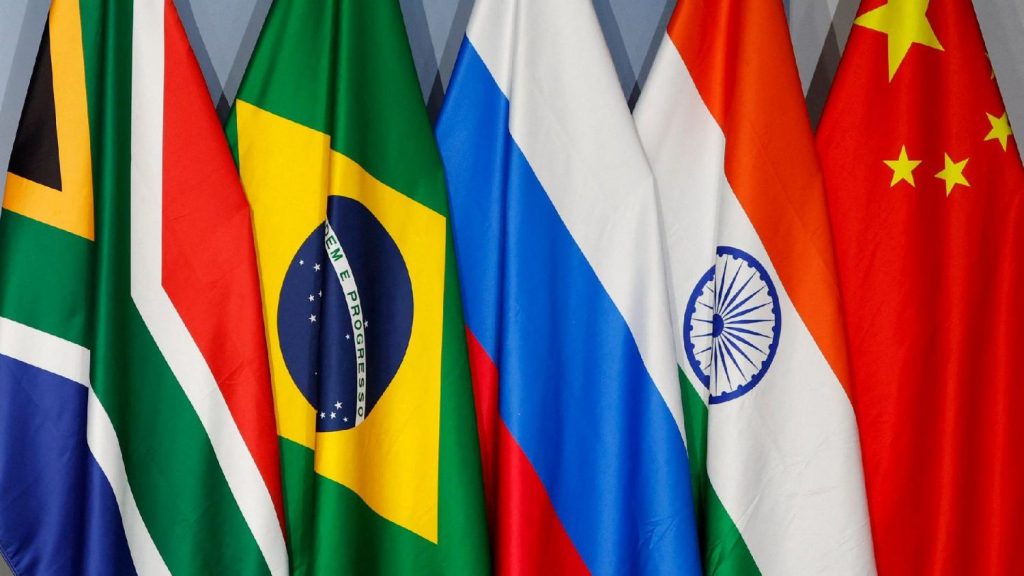BRICS SWIFT Alternative Plan Revealed: Global De-Dollarization Push Accelerates
BRICS nations unveil game-changing financial infrastructure to challenge Western banking dominance.
The Dollar's Reign Faces Its Greatest Threat
Five major emerging economies just dropped a financial nuclear option—a complete SWIFT alternative designed to bypass traditional dollar-dominated settlement systems. This isn't just talk; it's operational architecture being deployed right now.
Why This Changes Everything
Traditional cross-border payments get sliced by 70% in processing time while cutting out intermediary banking fees that have propped up the old system for decades. The move accelerates the global shift toward multipolar finance—whether Wall Street likes it or not.
Gold-Backed Settlement Meets Digital Infrastructure
Forget theoretical debates. This system leverages commodity-backed digital tokens alongside traditional currency swaps, creating a hybrid model that actually works for real-world trade volumes. It's the kind of innovation that makes legacy banking look like it's still using fax machines.
The Bottom Line
When nations representing over 40% of global population coordinate monetary infrastructure, you pay attention. This isn't about politics—it's about efficiency, sovereignty, and frankly, better technology winning out. The dollar won't disappear tomorrow, but its monopoly just got an expiration date. And frankly, watching traditional banks scramble to maintain relevance? Priceless.
BRICS Payment System News Highlights SWIFT Replacement And Global Payments

Technical Foundation of BRICS SWIFT Alternative
The BRICS SWIFT payment system builds on existing infrastructure from member nations, along with Russia’s SPFS system, China’s CIPS network, and even India’s UPI framework. BRICS Pay features a decentralized Cross-border messaging system, which was actually developed by scientists at Saint-Petersburg State University.
Right now, the BRICS SWIFT system promises some impressive capabilities. DCMS claims to reach 20,000 messages per second while also imposing minimal hardware requirements. The system doesn’t feature mandatory transaction fees, and participants can establish currency conversion rates.
The push for this BRICS SWIFT replacement stems from multiple factors, along with the weaponization of traditional payment systems. US foreign policy has significantly sped up de-dollarization efforts, and also aggressive sanctions imposed on Russia played a major role. The debate around BRICS Pay vs SWIFT has intensified as member countries seek financial independence from Western-controlled systems.
Current Progress and Member Positions
The BRICS Cross-Border Payments Initiative was actually debated as part of the broader BRICS SWIFT alternative global payments strategy. The group welcomed the technical report that was prepared by the BRICS Payments Task Force. This outlined clear ways to enhance interoperability between national financial systems.
However, individual member positions vary significantly. Russia is the most enthusiastic about the BRICS SWIFT payment system, but other founding members remain cautious. Some experts think that bankers are not convinced that BRICS has been able to come up with a technical support system for creating and sustaining an alternative to the SWIFT system.
At the time of writing, Reserve Bank of India Governor Shaktikanta Das has clarified that the government was not “” and that the US dollar “.”
Economic Impact and Implementation Timeline
The scale of potential disruption cannot be understated, especially when you consider that SWIFT handles $150 trillion in transactions every year. The BRICS SWIFT alternative could trigger some significant economic Ripple effects, and a de-dollarization of the world economy would cause a dollar glut.
Despite ambitious goals for the BRICS SWIFT system, experts remain cautious about timelines. The Kazan Declaration was vague about implementation details, and participation by member countries WOULD be voluntary and also non-binding.
Future Outlook
The BRICS SWIFT replacement represents more than just technological innovation. It actually embodies a fundamental shift in global power dynamics. While technical and political challenges remain substantial, the momentum behind the BRICS SWIFT alternative global payments initiative continues building.
At the time of writing, whether this BRICS SWIFT payment system succeeds will largely determine the future balance of economic power between established and emerging economies. The initiative intends to strengthen trade between Global South countries and also reduce dependence on Western-controlled platforms.

